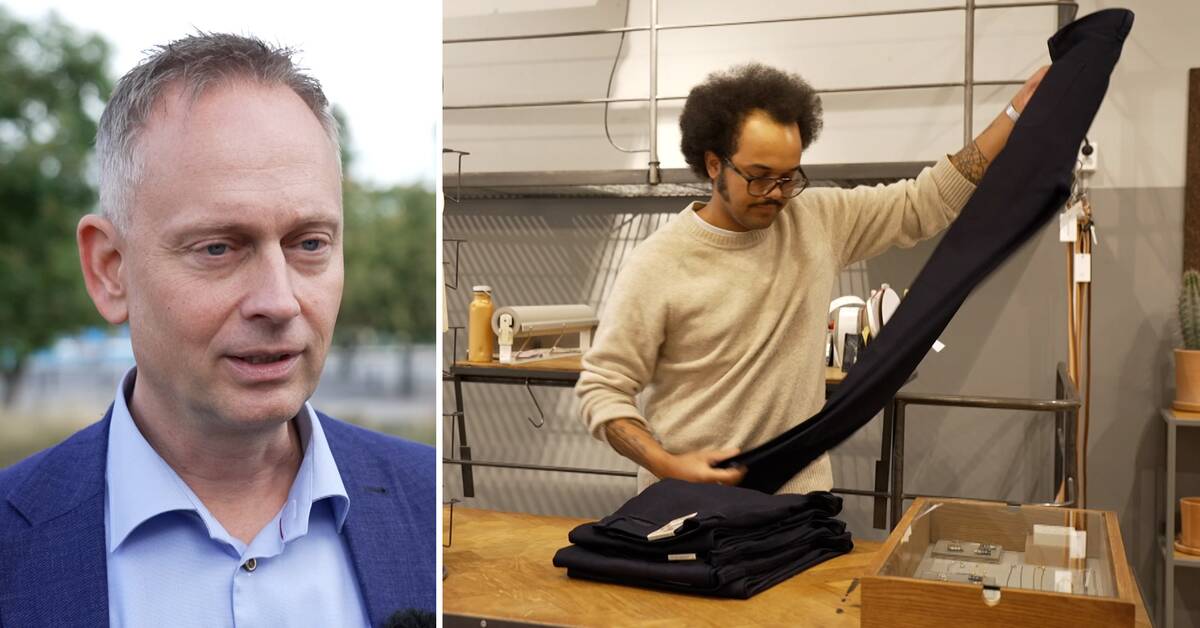August is usually a month of good sales in the fashion industry.
The children's schools open, adults go back to work and the approaching autumn usually makes us buy new clothes.
But this year it looks different.
Figures from the industry organization Swedish Trade's style index show that sales of clothing decreased by 2.5 percent and shoes by 7.6 percent, compared to August 2021 during the corona pandemic.
Generally speaking, companies have small profit margins on the products they sell.
This means that they have to sell a lot of garments to make a profit.
The fact that the demand for clothes is now decreasing mainly affects the small companies, according to Svensk Handel's chief economist Johan Davidson.
- They do not have the same financial muscle as the larger chains.
But the entire trade is widely affected by this, he says.
Expensive shipping and late deliveries
In the Grandpa store in Stockholm, the decrease in sales was noticed in August.
However, the founder Johan Pelz believes that it was due to late deliveries, which meant that they had too few goods to sell.
In addition, he believes that the warm weather in August made people wait to buy new autumn clothes, which had time to enter the stores by then.
- People wait to make purchase decisions about a new jacket or a knitted sweater when it's 30 degrees outside, says Johan Pelz.
Swedish Trade raises shipping costs as another problem for trade.
Prices there have risen fivefold.
- Unfortunately, most curves point in the wrong direction right now, says chief economist Johan Davidson.
Kristider favors second hand
However, the fact that consumers hold tight to their wallets is not something that is noticeable in the second-hand industry.
At Myrorna in Stockholm, people are still eager to buy used clothes and shoes.
- I'm not worried, says store manager Susanna Johansson Järdö.
Swedish Trade predicts that the market for used clothes and shoes will perform stronger than the new trade.
The same applies to discount brands and outlets, as the prices attract an emptier wallet.
- In economic downturns, households prioritize.
Historically, low-price alternatives in all parts of the trade have become more attractive, says Chief Economist Johan Davidson.

